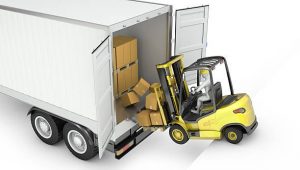What you need to know about forklift accident lawsuits
It is often said that we live in a litigious society. Unfortunately, workplaces, where forklifts are in operation, are not immune to litigation. If you are in a position of authority in a facility where forklifts are in operation, you need to know about forklift accident lawsuits. While the chances are slim that one will come your way, if it does, you need to be prepared in advance.
Common Forklift Accident Lawsuits
Some of the most common reasons for forklift accident lawsuits include:
• Failure to comply with OSHA forklift operator training requirements
• Failure to comply with OSHA regulations regarding workplace safety
• Failure to regularly and thoroughly inspect forklifts
• Failure to maintain a forklift

Image courtesy of iStock by Getty Images – Photo by Zelfit
It is important to note that liability usually focuses not on the forklift operator, but on the company that hires the operator. Even if the operator is blatantly at fault, the company will be sued for not training the operator properly or for allowing them to work.
A recent example highlights the nature of a forklift accident lawsuit. According to the Southeast Texas Record legal journal, a Galveston County resident filed a lawsuit in relation to a 2009 accident in which his foot was run over by a forklift in a seafood warehouse.
The complainant, who was not a company employee, was apparently waiting to speak with a warehouse supervisor when the incident occurred. The forklift was backing up, but its backing signal was either broken or disabled, giving the man no warning of its approach. This and the allegation that the company failed to warn him in advance of the backing vehicle are the reasons for the lawsuit.
The man’s foot was fractured in the incident and he was immediately rushed to the University of Texas Medical Branch, where he was treated. According to his lawsuit, he also required ongoing treatment elsewhere. The man is suing the seafood company for $75,000 in damages that include medical expenses and “pain and suffering.”
It’s easy to see how preventable the accident could have been if the facts presented by the complainant are accurate. Any piece of equipment requires regular maintenance and a complex, hard-working piece of equipment such as a used forklift has many parts that can fail at any given time. That’s why OSHA requires daily lift truck inspections. Needless to say, when something is faulty, the forklift should be taken out of operation until it is fixed.
It’s unlikely that the visitor to the seafood warehouse wanted his foot to be run over by a forklift and had the reverse signaling device been operational, he would have gotten out of the way. As it was, the incident allegedly occurred “suddenly and without warning” and he suffered a serious injury.
Whether the seafood company was at fault or not is a matter for the courts to decide, but their legal fees will far exceed the cost of repairing or replacing the warning device, regardless of the outcome. In another instance, it might be the brakes that fail or even driver negligence that causes an accident. In any event, your best defense is to ensure there is no legal reason or excuse for a forklift lawsuit.

